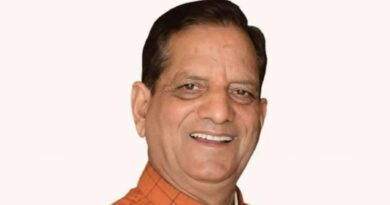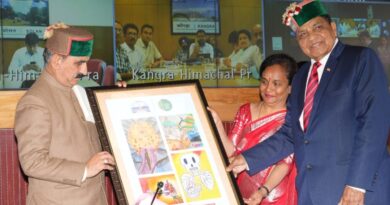Naresh Chauhan asks centre to accept responsibility of imposing heavy taxes in form of GST for eight years
Chief Minister’s Principal Media Advisor Naresh Chauhan today welcomed the recent reforms in Goods and Services Tax (GST) but said that the Centre must accept responsibility for exploiting the poor and middle-class through excessive taxation since its implementation in 2017.
Addressing a press conference here on Wednesday, Chauhan said that from 2017 to 2025, the citizens, especially the poor and middle class, were heavily burdened with taxes even on essential items like pulses, food, and clothing. He alleged that through this, the Centre collected more than Rs. 55 lakh crore in the past eight years and now must seek an apology from the people of the country.
He said that Congress from the very beginning termed GST as an unfair system and consistently demanded reforms, but the BJP-led Centre ignored opposition voices for its own financial gains. He reminded that Congress leader Rahul Gandhi had described GST as “Gabbar Singh Tax” and added that what the Centre was projecting it as reforms and savings though this should instead be termed as repentance and realization.
Chauhan further said that since 2014, most of the policies of the Central Government have been anti-people and against the interests of the poor and middle class. The GST reforms, he added, reflect’s the Centre’s political compulsion as BJP fears defeat in upcoming elections in states including Bihar.
He pointed out that the foundation of GST was laid during UPA-2 through committees and expert deliberations, envisaging a uniform tax structure. However, after 2014, the BJP reshaped GST forcing the burden on the people by introducing tax slabs of 5, 12, 18, 28, and even 40 percent, leading to continuous exploitation for eight years.
Chauhan accused the Centre of filling its coffers by squeezing the savings of poor and middle class through heavy taxation. He said while citizens battled inflation and unemployment, GST collection pushed them into economic distress, reducing their purchasing power and slowing the development.
He also criticized the Centre for denying the benefit of cheaper crude oil imports from Russia to the public, keeping petrol and diesel prices high while restricting the gains to a few large corporate houses.



